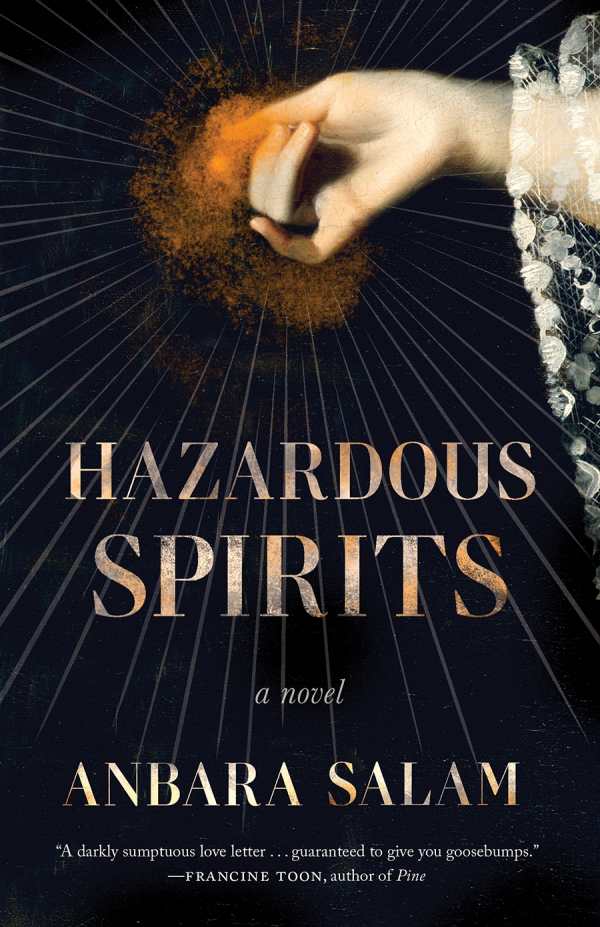Hazardous Spirits
A secret-keeping woman from polite society enters spiritualist circles somewhat against her will in Anbara Salam’s glittering historical novel Hazardous Spirits.
In the shadows of World War I and the 1918 flu pandemic, everyone in Edinburgh has known loss. Evie herself is haunted by Dolly, the sister whose divorce scandalized the family before she succumbed to the flu. Dolly was free-spirited, a suffragette––and the sole person aware of the memory that Evie tried to bury along the shore.
When Evie’s unpedigreed husband, Robert, claims to be speaking to spirits, Evie is shaken. It could lead to scandal. Her disowning. Or, worst of all: to Dolly revealing the truth about Evie from beyond.
Roaring Twenties decadence is captured from Evie’s outwardly proper perspective: swilled gin and champagne, costume-ball excess, and the moneyed-class desire to test the boundaries between worlds that helped spiritualism take root. Though she at first forbids Robert from training as a medium, she relents for the sake of marital harmony. She reasons that Sir Arthur Conan Doyle and Thomas Edison’s susceptibility gives the community some social cover.
Still unsure if spiritualism is fraudulent or an acceptable balm, Evie attends séances with a sense of morbid fascination; she flirts with believing. She allows her senses to be swayed. And as she encounters famed personalities like Vikram, the estate-dwelling Highland hero, she is swept up—into a night life that is “swift and giddy, full of laughter, starlit.” She befriends sexually free models and rich foreigners. She witnesses, with horror but intrigued, parlor games like swapsie turvy (who among the living would you trade for someone beloved and departed?). And she prays that Dolly’s voice won’t come through.
A woman’s adopted impressionability clashes with her keen sense of reason in the trauma-tinged, intemperate interwar years of the intoxicating novel Hazardous Spirits.
Reviewed by
Michelle Anne Schingler
Disclosure: This article is not an endorsement, but a review. The publisher of this book provided free copies of the book to have their book reviewed by a professional reviewer. No fee was paid by the publisher for this review. Foreword Reviews only recommends books that we love. Foreword Magazine, Inc. is disclosing this in accordance with the Federal Trade Commission’s 16 CFR, Part 255.

